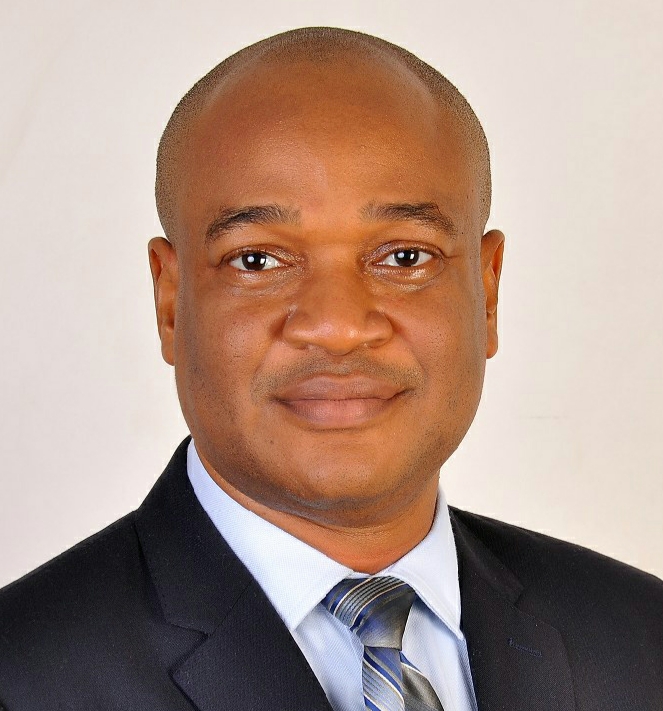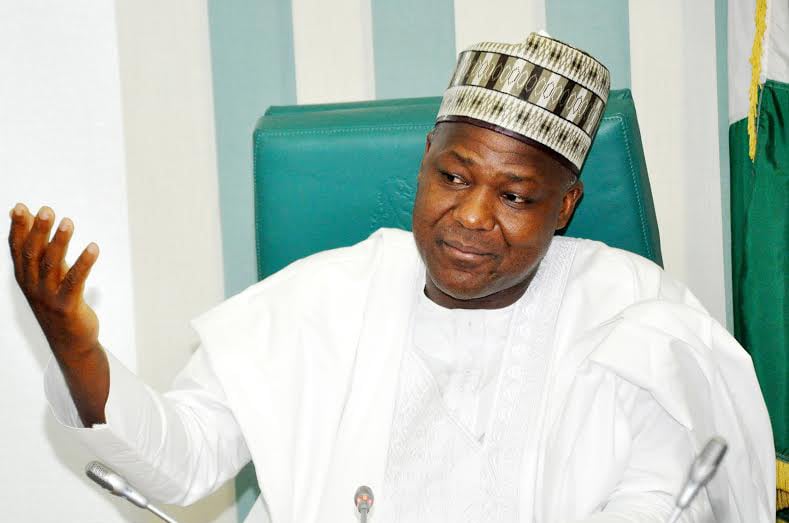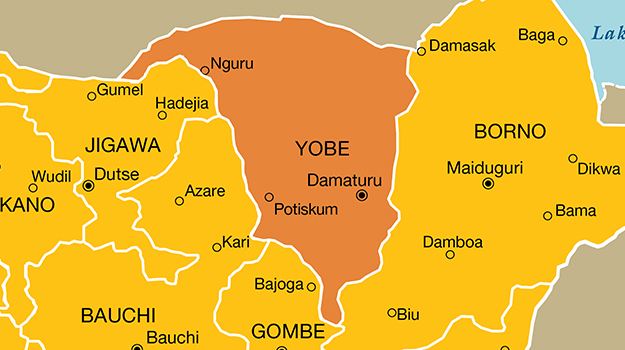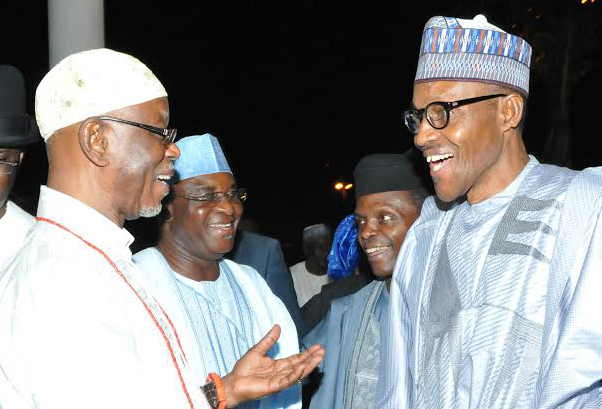The election of the presiding officers of the 8th National Assembly generated so much heat that it probably increased global warming. It also created a lot of excitement and, very importantly, varying discourses from different sides of the spectrum. The first issue, and one which I consider most important was the appropriateness of going ahead with the commencement of the first session of the Senate with 57 Senators-elect in attendance.
I would refrain from commenting on the botched meeting at the International Conference Centre because two questions remain unanswered: Did President Muhammadu Buhari really convene the meeting? If he did, was there a formal communication to the Clerk of the National Assembly to delay or suspend the commencement of the first session of the National Assembly thereby revoking the earlier one that contained the Proclamation for the first session? It is the answers to these questions that can help address what is otherwise a strictly constitutional matter involving institutions of the state. I want to safely deduce that no such communication was received by the Clerk because being a very senior public servant he knows the implications of disregarding or disobeying such an official correspondence from the President.
So, the real question should be: how many Senators-elect are required to be present for the first session of the Senate to commence? To this we should consult the Constitution of the Federal Republic of Nigeria 1999 [as amended] from which the Senate was established in the first place. Section 64 (3) of the Constitution states that “Subject to the provisions of this Constitution, the person elected as the President shall have the power to issue a proclamation for the holding of the first session of the National Assembly immediately after his being sworn in, or for its dissolution as provided in this section”. That Section did not address the question of number. However, Section 54 (1) had earlier stated that “The quorum of the Senate or the House of Representatives shall be one-third of all members of the legislative house concerned”. It has been argued that this was referring to the Senate, in this instance, after the first session has commenced not before.
But it is noteworthy that Section 52 (1) had referred to “Every member of the Senate or the House of Representatives shall, before taking his seat, declare his assets and liabilities as prescribed in this Constitution and subsequently take and subscribe the Oath of Allegiance and the oath of membership…” It presupposes that since the Constitution did not refer to them as Senators-elect even before taking their seats and subscribing to the oath of membership, it is very well in order to conclude that it was the intention of the Constitution that the same quorum be applied even at the first sitting. So 38 Senators or more present in the Chambers was enough to commence the first session of the Senate of the Federal Republic of Nigeria.
Advertisement
Having said that, I believe that we need a constitutional amendment to address this matter because it is not in our interest as a nation to sustain this situation or else a rogue president can capitalise on this provision in future to impose an equally rogue leadership on the National Assembly using instruments and institutions of executive power. 38 Senators to commence the first session of the Senate? No, we should look at it again and this should be the focus for our intellectuals and commentariat at a time like this as we continue to build our nation. It is one of those moments in time. What about the quorum required to elect presiding officers?
Again the Constitution and the Senate Standing Orders 2015 [As Amended] are silent on it, leaving same to the conjecture of principles of the one-third quorum and simple majority. Before I leave the numbers debate, I would like to point out that it has been widely reported that because 57 Senators took the roll call before the election of Senator Bukola Saraki as Senate President, then it concludes that the remaining 51 Senators were in the International Conference Center for the meeting that did not hold. I beg to differ because right after Senator Saraki was sworn-in, some Senators entered the Senate Chambers and were asked by the Clerk to identify themselves. They included then Senators-elect Ben Murray-Bruce, Jonah Jang, Jeremiah Useni and others that are in PDP and could not have been at the ICC for the meeting.
With that out of the way, I would strongly argue that the leadership of the All Progressives Congress bungled an opportunity to avert the embarrassment they got at the National Assembly on that day and thereafter. Political parties are major pillars of any democracy and the principle of party supremacy must be sacred or else our democracy itself would be at risk. Under the Constitution, there can be no elected official without his or her membership of a political party and I have seen them grovel before party leaders at the party headquarters while seeking nomination to be candidates only to talk down the same leaders and by implication their parties once they have won the elections. This ought not to be. The parties (read leaders) on their part have continually failed to maintain a moral absolute that ought to earn them the respect of their members. They have manipulated their own rules, offered themselves to the highest bidders and made mockery of their nomination processes. So in return, the eventual candidates having become elected treat them with disdain, holding out the “mandate of the people”.
Advertisement
In their book, American Democracy in Theory and Practice, Robert Carr, Marver Bernstein and Donald Morrison wrote that ideally, political parties help meet two strongly felt needs which have to be achieved if democracy is to prove successful. First the party provides an agency through which people who wish to influence the course of public policy in the light of common interests may organize their strength and take effective steps to win control of the government. Second, the party undertakes to run the government in a way that keeps faith with the interests of the voters who have placed it in power. So it goes without saying that the perils of democracy lie at the foot of party indiscipline and we should continue to uphold party supremacy but to achieve this requires the collaboration of their leadership and membership alike.
Sixteen years into democracy, our political parties need to establish a moral absolute in order to maintain party discipline and party supremacy. In 2011, Hon. Aminu Tambuwal disobeyed the zoning formula of his party, the Peoples Democratic Party, and offered himself for the position of Speaker of the 7th House of Representatives, encouraged by the loving embrace of the opposition parties. He did so because his party got it wrong in the first place by zoning the position of Speaker to their electorally weakest zone – the South West, which had only 3 members qualified to vie for the position. The party did this to please one man, not to maintain a moral absolute. Had the party zoned that position to the North East as I postulated then, it would have retained the discipline of most of its members and the final outcome would have strengthened the principle of party supremacy.
Four years on, the All Progressives Congress, majority of whose leaders and members sang Tambuwal down the path of party indiscipline had its own majority in the National Assembly and learnt no lesson from 2011. The first mistake they made was to duck the subject of zoning which it had used to nominate Prof. Yemi Osibanjo as its Vice Presidential candidate because it was clear that the party wanted that position to go to one of the 3 geopolitical zones in the South. In doing this at the time, the party affirmed the high importance of zoning in maintaining the stability of our patchwork heritage. If the party had remained consistent and maintained a zoning formula based on a moral absolute rather than pandering to the desires of one man (as PDP did 4 years ago) it would have retained the respect and discipline of more of its members in the National Assembly.
It is more stunning to me that they did not do it given that the parameters for zoning were fair to the party. How? Firstly, there are traditionally 6 positions available to the party in government to be zoned to the 6 geopolitical zones: President, Vice President, Senate President, Speaker of the House of Representatives, Secretary to the Government of the Federation and the National Chairman of the party. In this dispensation, the North West, South West and South South have taken 3 of these positions leaving the North East, North Central and South East. Given that the South East did not elect any ranking member from the APC into the National Assembly, it was not in a position to contest to be the presiding officers of any of the two chambers. This leaves the 2 positions to the North Central and North East.
Advertisement
Secondly and rather fortuitously for the party, if the ‘broom revolution’ had a legislative agenda for an incoming National Assembly, it was embraced in differing values across the geopolitical zones but more in some than others. What do I mean? At the time for inauguration of the National Assembly in 2015, PDP had a net loss of 9 Senators in the North Central when compared with the inauguration in 2011, 9 in the North East and 12 in the North West but it recorded a net gain of 2 Senators in the South East, 2 in the South South and 4 in the South West (where PDP increased its hold from 1 Senator in 2011 to 4 in 2015). Whereas, using the legacy parties of APC (Action Congress of Nigeria, All Nigeria Peoples Party and Congress for Progressive Change) for comparison, APC recorded a net gain of 10 Senators in the North Central, 9 in the North East and 12 in the North West while having a net loss of 1 Senator each in the South East, South South and South West.
The same picture unfolds in the House of Representatives. At the time of inauguration in 2015, PDP had a net loss of 19 members in the North Central when compared with the inauguration in 2011, 19 in the North East and 48 in the North West but it recorded a net gain of 6 members in the South East, 6 in the South South and a whopping 13 in the South West (where PDP increased its hold from 8 in 2011 to 21 in 2015). On the other hand, again using the legacy parties of APC for comparison, APC had a net gain of 20 members in the North Central, 17 in the North East and 47 in the North West. But the party had a net loss of 1 member in the South East, 4 in the South South and 3 in the South West. Note that the differing figures in direct computation are due to the multiplicity in strength of other parties in 2011 such as Labour Party, Democratic Peoples Party, All Progressives Grand Alliance and Accord Party.
So by its seismic shift in party allegiance, the North Central and North East were best suited to produce either the President of the Senate or the Speaker of the House of Representatives using the time-tested political principle of numbers, reward and consolidation. It would have been electorally costly for the party to have ignored the expressed aspirations of the voters in these 2 zones in the National Assembly elections. They did not send more members to the National Assembly to play second fiddle and watch the party ‘reward’ a zone where they had lost seats and has the No. 2 citizen, just to please one man. The party could have then drilled down further to determine which of these positions will go specifically to each of these 2 zones. If that is achieved, it can then use a transparent, free and fair straw poll by its members to elect their candidates for the positions, not one that would have members write their names, constituencies and preferred candidates on the ballot papers as was done by the party.
Yet all was not lost for the party. It could have seized the election of Senator Bukola Saraki as Senate President and Hon. Yakubu Dogara (pictured) as Speaker of the House of Representatives to recalibrate its change message and celebrate the party’s commitment to upholding our diversity – Saraki is a Yoruba from the North Central while Dogara is a Christian from the North East. APC did not do these and the party lost this one moment in time.
Advertisement
Twitter: @nnannaude
Advertisement
Add a comment






